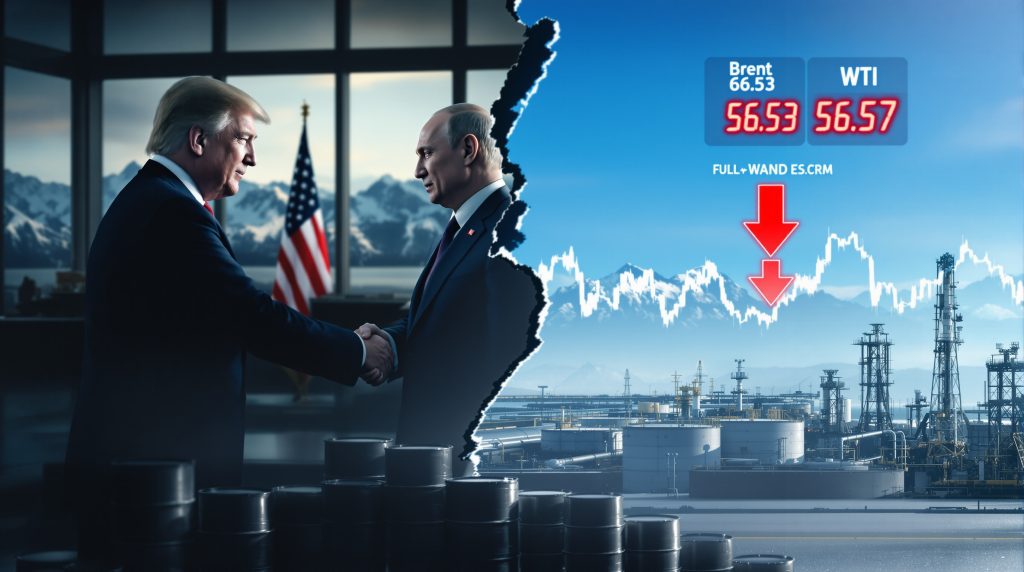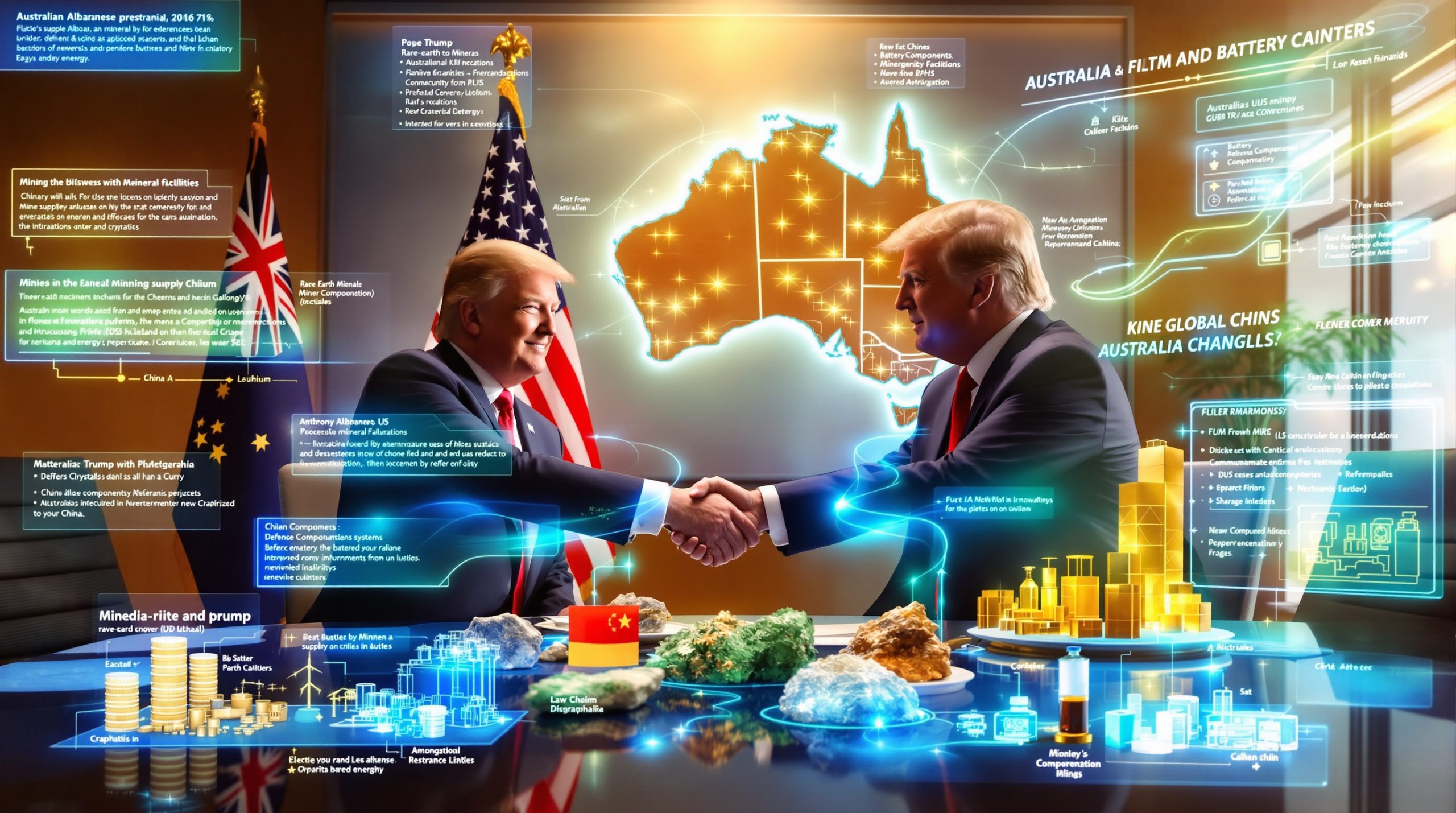Oil Prices Respond to High-Stakes Diplomatic Engagements: Understanding Market Reactions
Global oil markets have historically demonstrated significant sensitivity to diplomatic meetings between world leaders, particularly those representing major energy-producing nations. When heads of state from countries with substantial petroleum resources or geopolitical influence engage in high-profile summits, energy traders carefully analyze potential outcomes and adjust their positions accordingly. Recent oil price crash analysis shows how quickly markets can respond to geopolitical developments.
How Diplomatic Meetings Influence Oil Price Movements
Oil markets react swiftly to diplomatic developments due to their potential impact on global supply chains and energy security. These reactions typically manifest through immediate price adjustments as traders assess the likelihood of policy changes affecting production, sanctions, or regional stability.
When diplomatic tensions ease between major powers, markets often respond with downward price pressure as risk premiums diminish. Conversely, escalating rhetoric or failed negotiations can trigger price increases as traders hedge against potential supply disruptions.
Key factors that influence how markets respond include:
- Signaling of potential sanctions or their removal
- Indications of production agreements or disagreements
- Resolution or escalation of regional conflicts
- Changes in trade policy affecting energy flows
- Shifts in military posture near critical energy infrastructure
Historical Examples of Diplomatic Impact on Oil Markets
Several historical meetings between world leaders have triggered notable movements in oil prices, demonstrating the market's sensitivity to geopolitical developments.
US-Saudi Relations and OPEC Coordination
When former President Trump met with Saudi leaders in May 2017, oil markets responded to signals about potential production agreements. The diplomatic engagement between these two energy powerhouses sent ripples through global markets as traders anticipated policy coordination that could affect global supply.
According to market data from that period, WTI crude prices fluctuated by approximately 4% in the days surrounding the high-profile visit, reflecting uncertainty about potential oil price trade war dynamics.
Iran Nuclear Negotiations
The 2015 Iran nuclear deal negotiations represent another clear example of diplomatic meetings affecting oil prices. As talks progressed toward an agreement that would lift sanctions on Iranian oil exports, global benchmark prices declined in anticipation of additional supply entering the market.
"Diplomatic negotiations that could bring significant volumes of previously sanctioned oil back to market tend to exert downward pressure on prices, as traders adjust their supply-demand calculations," noted energy analyst Sarah Thompson in her 2018 market review.
When the U.S. later withdrew from the agreement in 2018, oil prices surged over concerns about reduced global supply, with Brent crude jumping nearly 3% immediately following the announcement.
Market Expectations vs. Reality in Diplomatic Outcomes
A fascinating aspect of oil market behavior is the gap that often emerges between trader expectations and diplomatic realities. Markets frequently price in worst-case scenarios ahead of high-stakes meetings, creating opportunities for significant corrections when outcomes prove less disruptive than anticipated.
The Pricing of Risk Premiums
Oil futures contracts typically incorporate risk premiums during periods of diplomatic uncertainty. These premiums represent the additional cost traders are willing to pay to hedge against potential supply disruptions or policy shifts.
When major diplomatic meetings conclude without the anticipated negative outcomes, these risk premiums often dissipate quickly, leading to price corrections that may appear disproportionate to casual observers.
Risk premiums generally account for:
- Potential sanctions implementation or enforcement
- Military conflict escalation possibilities
- Production agreement breakdowns
- Transport route disruptions
- Changes in export policies
Algorithmic Trading Responses
Modern oil markets are heavily influenced by algorithmic trading systems that can instantly react to diplomatic news. These systems scan headlines, press releases, and social media for keywords that might indicate shifts in energy policy or international relations.
According to a 2023 study published in the Journal of Financial Markets, approximately 60% of oil futures trading volume now stems from algorithmic systems, many of which are programmed to execute trades within milliseconds of diplomatic announcements.
This technological evolution has dramatically increased the speed at which diplomatic developments affect prices, often leading to sharp but short-lived price swings as human traders evaluate the broader implications of news events.
Sanctions Frameworks and Energy Market Impacts
International sanctions regimes represent one of the most direct ways diplomatic relations affect energy markets. Understanding how these frameworks function provides insight into market reactions to diplomatic developments.
Primary vs. Secondary Sanctions Mechanisms
Modern sanctions frameworks typically employ both primary and secondary mechanisms to restrict energy flows from targeted nations:
- Primary sanctions directly prohibit companies and individuals from the sanctioning country from engaging with the targeted nation
- Secondary sanctions threaten penalties against third-party entities that continue doing business with the sanctioned country
This dual approach creates complex market dynamics, as traders must evaluate not only the direct impact of sanctions but also the likelihood of compliance from countries not directly involved in the diplomatic dispute. Recent analyses of Trump tariffs global impact illustrate these complex relationships.
Energy Export Workarounds
Markets have consistently demonstrated remarkable adaptability in developing workarounds to sanctions regimes. These mechanisms often influence how traders respond to diplomatic developments that might affect sanction policies:
- Alternative payment systems that avoid international banking networks
- Ship-to-ship transfers that obscure the origin of petroleum products
- Blending of crude from different sources to mask origin
- Complex corporate structures that obscure beneficial ownership
- Insurance and reinsurance arrangements through non-sanctioning jurisdictions
"The market's ability to develop creative solutions to sanctions regimes means diplomatic announcements often have less impact on physical oil flows than headlines might suggest," explains energy market consultant Michael Reynolds.
Long-Term Energy Security Implications of Diplomatic Shifts
While markets often focus on immediate price movements following diplomatic meetings, the long-term implications for energy security frequently prove more significant for both consuming and producing nations.
Infrastructure Investment Decisions
Major diplomatic realignments can trigger fundamental shifts in energy infrastructure investment. When relations between key energy partners deteriorate, importing nations often accelerate diversification efforts to reduce vulnerability.
Examples include:
- LNG terminal construction to enable seaborne imports
- Pipeline development to access alternative suppliers
- Strategic petroleum reserve expansions
- Investments in domestic production capabilities
- Accelerated renewable energy transitions
These long-term responses create structural changes in energy markets that persist long after the diplomatic events that triggered them. For instance, Alaska drilling policy changes can significantly impact domestic production capabilities and energy independence strategies.
Renewable Energy Transition Acceleration
Geopolitical tensions involving major oil producers have historically served as catalysts for renewable energy investment. Following the 1973 oil crisis triggered by diplomatic tensions between the U.S. and OPEC nations, many Western countries initiated their first serious renewable energy research programs.
More recently, European nations accelerated renewable deployment following diplomatic tensions with Russia, with solar and wind capacity expanding by over 15% annually in some countries since 2021.
Expert Assessments of Oil Market Dynamics
Energy market analysts emphasize that while diplomatic headlines often trigger immediate price movements, fundamental supply-demand factors typically reassert themselves over longer timeframes.
Market Fundamentals vs. Political Headlines
Professional oil traders distinguish between short-term noise from diplomatic developments and the underlying market fundamentals that drive longer-term price trends:
- Short-term factors: Diplomatic meetings, unexpected announcements, military posturing
- Medium-term factors: Production capacity, inventory levels, seasonal demand patterns
- Long-term factors: Infrastructure development, technological change, climate policy
"Markets overreact to political headlines in the short run, but revert to fundamentals over time," notes petroleum economist Thomas Wilson. "The challenge for investors is distinguishing between diplomatic events that might genuinely disrupt physical supply chains versus those that generate headlines without materially affecting oil flows."
Recent analysis from MSN Money Markets confirms that oil markets typically stabilize once initial reactions to high-profile diplomatic meetings subside.
Geopolitical Risk Assessment Framework
Professional risk analysts employ structured frameworks to evaluate how diplomatic developments might affect energy markets:
- Assess the likelihood of policy implementation versus rhetorical posturing
- Evaluate technical feasibility of enforcing announced measures
- Analyze economic incentives for compliance or evasion
- Consider historical precedents for similar diplomatic situations
- Examine alternatives available to affected market participants
This systematic approach helps explain why markets sometimes appear to underreact to seemingly significant diplomatic announcements that experts recognize as unlikely to materially affect physical oil flows.
FAQs About Oil Prices and Diplomatic Developments
How quickly do oil prices typically respond to diplomatic meetings?
Oil futures markets generally react within minutes of significant diplomatic announcements, with price movements often beginning even during ongoing press conferences or statements. Physical oil prices, which reflect actual cargoes changing hands, adjust more gradually over hours or days as buyers and sellers assess the practical implications.
What factors beyond geopolitics affect current oil prices?
While diplomatic events capture headlines, oil prices simultaneously respond to global economic growth forecasts, inventory reports, OPEC+ production decisions, seasonal demand patterns, refinery outages, and long-term energy transition trends. The US drilling decline has also significantly impacted oil price dynamics in recent years. Technical market factors like options expiration dates and futures contract rollovers can also temporarily influence price movements.
How do traders distinguish between meaningful diplomatic developments and political theater?
Experienced energy traders focus on announced policies that could physically constrain supply or demand rather than diplomatic rhetoric. They assess the technical feasibility of implementing announced measures, historical compliance patterns, and available workarounds before significantly adjusting positions based on diplomatic news.
According to Yahoo Finance analysis, market experts carefully evaluate the substance behind diplomatic announcements rather than reacting to headlines alone.
Can individual diplomatic meetings cause long-term shifts in oil price trends?
Single diplomatic events rarely change long-term price trajectories unless they trigger fundamental shifts in supply-demand dynamics. However, meetings that establish new frameworks for ongoing cooperation or conflict between major energy producers can initiate structural market changes that influence prices for years afterward.
Understanding Market Psychology During Diplomatic Uncertainty
The psychological aspects of oil trading during periods of diplomatic tension create fascinating market dynamics that go beyond rational economic calculations. Market participants must constantly evaluate not only the direct effects of policy announcements but also how other traders will respond to the same information.
This creates cascading effects where initial price movements can become self-reinforcing as algorithmic trading systems trigger technical signals that prompt further buying or selling pressure. Understanding these psychological dimensions provides valuable context for interpreting market movements during periods of heightened diplomatic activity between major energy producers and consumers.
As diplomatic relationships continue evolving between major world powers, energy markets will remain highly responsive to both substantive policy changes and perceived shifts in international relations affecting global oil flows.
Ready to Spot the Next Major Mining Discovery?
Discover why ASX mineral discoveries can lead to significant market returns by exploring Discovery Alert's dedicated discoveries page, where our proprietary Discovery IQ model transforms complex mineral data into actionable investment insights for both short-term traders and long-term investors.




